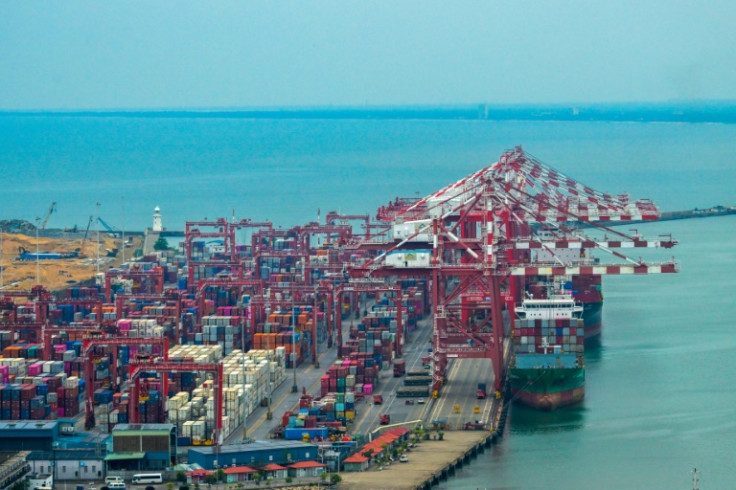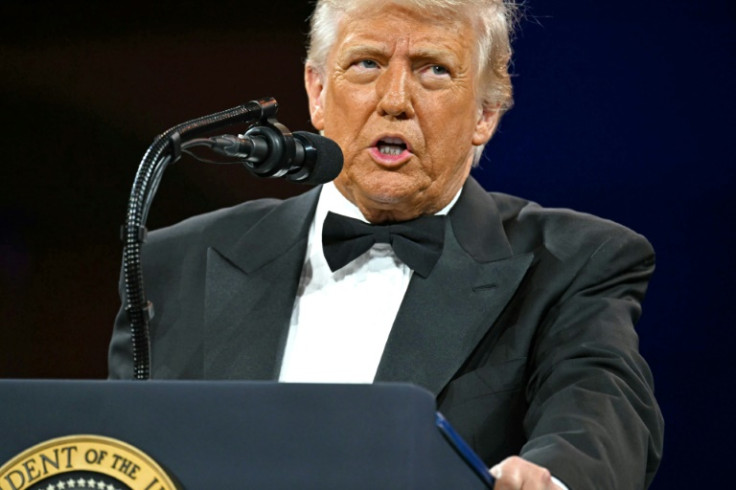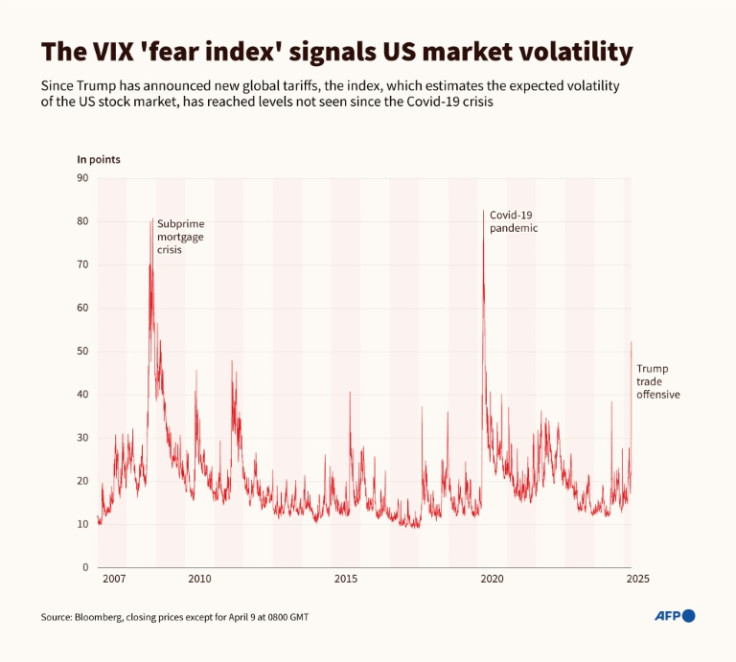Trump Tells US To 'Be Cool' As China, EU Strike Back

US President Donald Trump brushed off global market panic Wednesday after China and the European Union announced retaliatory tariffs, telling Americans to stay "cool" despite his spiraling trade war.
Trump dug in after superpower rival Beijing slapped massive 84 percent levies on US goods, just hours after his latest salvo of tariffs took effect on dozens of trading partners around the world.
"BE COOL! Everything is going to work out well. The USA will be bigger and better than ever before!" Trump posted on his Truth Social platform following the Chinese and EU counterattacks.
Trump sought to convince unnerved investors in a follow-up post that "THIS IS A GREAT TIME TO BUY!!!"
But Wall Street stocks remained highly volatile while European and Asian stock markets tumbled along with oil. A sharp sell-off in normally safe US government bonds set investors further on edge.
Trump said world leaders were rushing to negotiate "tailored" deals with the United States, with Japan and South Korea among those sending delegations to Washington.
"I'm telling you, these countries are calling us up kissing my ass," Trump told a dinner with fellow Republicans on Tuesday night.
But China doubled down, after Trump ramped up the duties he had originally prepared for Chinese goods on Wednesday to a giant 104 percent.
Beijing had originally planned a 34 percent tariff on US imports but raised the toll to 84 percent in response.
"The tariff escalation against China by the United States simply piles mistakes on top of mistakes," the Chinese finance ministry said.
The European Union then launched its own counterattack, announcing measures targeting some US products from Tuesday in retaliation for American duties on global steel and aluminum exports.
The 27-nation bloc, which Trump has accused of being created to "screw" the United States, will hit more than 20 billion euros' worth of US products, including soybeans, motorcycles and beauty products.
"These countermeasures can be suspended at any time, should the US agree to a fair and balanced negotiated outcome," the European Commission said after EU member states approved the measures.
Germany's incoming leader Friedrich Merz urged Wednesday a "joint European response" to Trump's tariffs as he unveiled a deal to form a coalition government.
The fightback by Beijing and Brussels came despite repeated warnings by US officials to hold off.
US Treasury Secretary Scott Bessent warned countries at a banking summit Wednesday that aligning with Beijing "would be cutting your own throat."
But in yet another signal that Trump is ready to negotiate, Bessent added that the levels the US president announced on what he called "Liberation Day" last week were "a ceiling, if you don't retaliate."
Trump believes his policy will revive America's lost manufacturing base by forcing companies to relocate to the United States.
The billionaire former property tycoon has particularly raged against China, accusing it of excess production and "dumping" inexpensive goods on other economies.
But the trade war is also heightening political tensions between the world's two largest economies.
China warned tourists on Wednesday to "fully assess the risks" before travelling to the United States.
US Defense Secretary Pete Hegseth then warned against Chinese "threats" as he visited Panama, whose canal is at the center of a row between Beijing and Washington.
Many business experts and economists meanwhile question how quickly, if ever, Trump's bid to relocate industries to the United States could happen -- and warn it could reignite inflation and trigger a recession.
The escalating trade war has wiped off trillions of dollars in market value since last week.
Tokyo's Nikkei index closed almost four percent lower.
The dollar fell against major currencies while oil prices fell below $60 a barrel, their lowest level in four years.
In a major red light for economists, government bond yields -- essentially the interest countries pay to borrow money -- rose in the United States, Japan and Britain.


© Copyright AFP 2024. All rights reserved.




















